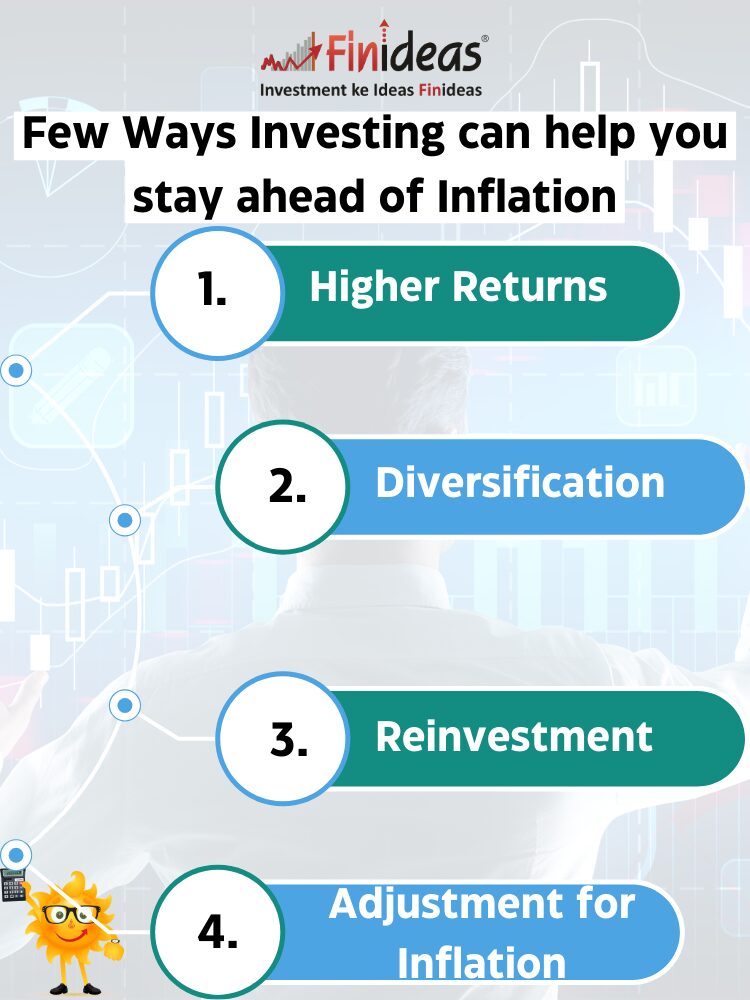How Your Money Can Keep Up with Rising Prices
Inflation is a concept that affects every aspect of our financial lives, yet it’s often misunderstood or overlooked. Simply put, inflation is the increase in the prices of goods and services over time, leading to a decrease in purchasing power. While it may seem like a distant economic concept, its effects can have a significant impact on our everyday lives, particularly on our savings and investments.
Inflation erodes the value of money. Imagine if you had ₹100 today, and the inflation rate is 5% annually. In ten years, that ₹100 would have the purchasing power equivalent to roughly ₹59.87 in today’s money. This erosion can significantly affect your ability to afford the same goods and services in the future.
So, what can you do to combat the effects of inflation and ensure your money retains its value? The answer lies in investing.
Investing is the practice of committing money or capital to an endeavor with the expectation of obtaining an additional income or profit. While there are various investment vehicles available, such as stocks, bonds, real estate, and commodities, the common goal is to grow your wealth over time.
Here are a few ways investing can help you stay ahead of inflation:
Higher Returns:
Unlike traditional savings accounts with minimal interest rates, investments have the potential for higher returns. Historically, stocks and real estate have outpaced the rate of inflation over the long term, allowing investors to preserve and grow their purchasing power.
Diversification:
Investing across different asset classes can help spread risk and mitigate the impact of inflation on your overall portfolio. Diversification ensures that even if one sector or asset class underperforms, others may compensate, maintaining the value of your investments. Diversification is always recommended if you believe this then you must checkout Index Long Term Strategy.
Reinvestment:
Many investments offer the opportunity to reinvest earnings, such as dividends or interest. By reinvesting these earnings, you can accelerate the growth of your portfolio, compounding your returns over time and staying ahead of inflation.
Adjustment for Inflation:
Some investment options, like Treasury Inflation-Protected Securities (TIPS), are specifically designed to protect against inflation. These securities adjust their principal value based on changes in the Consumer Price Index, ensuring that your investment keeps pace with rising prices.
While investing can help mitigate the effects of inflation, it’s essential to approach it with careful consideration and a long-term perspective. Investing inherently involves risk, and it’s crucial to conduct thorough research or seek advice from financial professionals before making any investment decisions.
What investment strategies or vehicles do you currently use or plan to use to protect your savings from the impacts of inflation? Share your thoughts and experiences in the comments below!
Happy Investing!
This article is for education purpose only. Kindly consult with your financial advisor before doing any kind of investment.


